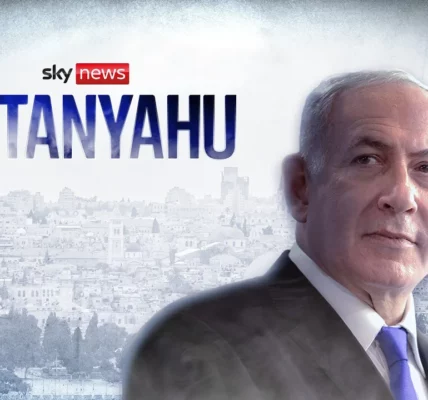Conflict in Gaza: Recent Airstrikes and the Impact of Yaya Sinar’s Death

This article delves into the recent developments in Gaza following Israeli airstrikes, the death of Hamas leader Yaya Sinar, and the broader implications for peace in the region. We explore the perspectives of key figures and analyze the ongoing conflict’s historical and political context.
Introduction
The ongoing conflict in Gaza has reached a critical juncture with the recent escalation of violence marked by Israeli airstrikes and the controversial killing of Hamas leader Yaya Sinar. Reports from the Hamas-run Health Ministry indicate a significant loss of life, with claims of up to 73 fatalities. However, the Israeli military disputes these figures, asserting that investigations are underway. This article seeks to provide a comprehensive overview of these developments, their implications for regional stability, and the perspectives of various stakeholders involved in the conflict.
The Recent Airstrikes in Gaza
The airstrikes conducted by Israel have intensified fears of a broader conflict in the region. The targeting of specific individuals, including Yaya Sinar, raises questions about military strategy and the humanitarian consequences of such actions.
Casualty Figures and Disputes
According to the Hamas-run Health Ministry, the casualties from recent airstrikes are staggering. However, the Israeli military has challenged these numbers, emphasizing the need for accurate reporting and investigation. The disparity in reported figures highlights the complexities of information dissemination in conflict zones.
- Hamas claims 73 deaths in recent strikes.
- Israeli military investigates the claims, asserting the need for verification.
Humanitarian Impact
The airstrikes have exacerbated the humanitarian crisis in Gaza. An estimated 400,000 people are currently besieged, facing dire conditions. The destruction of infrastructure and ongoing violence have left many without access to basic necessities.
The Death of Yaya Sinar
The killing of Yaya Sinar has significant implications for the dynamics within Hamas and the broader Palestinian resistance movement. While some may view his death as a tactical victory for Israel, others argue it could destabilize the region further.
Reactions to Sinar’s Death
Mustafa Barouti, President of the Palestinian National Institute, expressed that Sinar’s death will not lead to peace but may instead serve to fuel further conflict. Barouti argues that the real obstacles to a ceasefire lie within Israeli leadership.
- Barouti has long advocated for non-violence and peace negotiations.
- He emphasizes Netanyahu’s role as a significant barrier to peace.
Public Perception and Legacy
While Sinar was portrayed as a terrorist by Israeli narratives, many Palestinians view him as a figure who fought for his people’s rights. This divergence in perception poses challenges for future negotiations and public sentiment.
The Broader Context of the Conflict
The situation in Gaza cannot be viewed in isolation. Historical grievances and political complexities have fueled the ongoing violence, leading to cycles of retaliation and suffering.
Historical Background
Since the establishment of Israel in 1948, Palestinians have faced displacement and violence. The legacy of ethnic cleansing continues to resonate in the current conflict, as the population of Gaza includes many who are descendants of refugees.
- 1948: Establishment of Israel and subsequent displacement of Palestinians.
- 1967: The Six-Day War leads to further territorial disputes.
- 2005: Israel withdraws from Gaza, but tensions remain high.
Current Political Dynamics
The Israeli government’s approach, particularly under Netanyahu, has drawn criticism for its aggressive tactics and perceived lack of commitment to peace. The ongoing conflict is further complicated by external influences and the geopolitical interests of other nations, including Iran.
Conclusion
The recent developments in Gaza, including the airstrikes and the death of Yaya Sinar, underscore the fragility of peace in the region. As various factions continue to vie for power and influence, the humanitarian toll remains devastating. It is crucial for international actors to engage in meaningful dialogue aimed at establishing a lasting peace. As we reflect on these events, it is imperative to advocate for a balanced understanding and acknowledgment of the complexities involved in the Israeli-Palestinian conflict. For further insights and analysis, explore our related articles on Middle East conflict and peace negotiations.
“`




